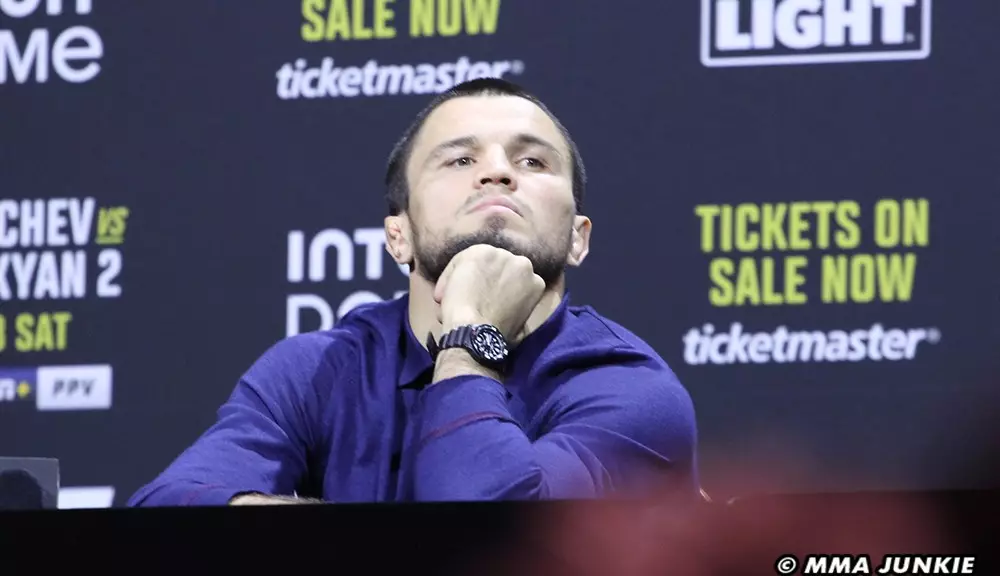As Umar Nurmagomedov prepares to enter the octagon against UFC bantamweight champion Merab Dvalishvili, the air is thick with speculation surrounding his state of health and the implications of competing while injured. Nurmagomedov, boasting an unblemished record of 18-0, is set to face Dvalishvili, who carries a record of 18-4, at UFC 311 on January 18 in Inglewood, California. Despite the looming competition, a recent revelation about a fractured arm raises critical questions about Nurmagomedov’s readiness for this high-stakes battle. His insistence on fighting before Ramadan intensifies the scrutiny, with concerns emerging about whether his ambition may cloud his judgment regarding his health.
Coach Tim Welch has voiced hesitations regarding Nurmagomedov’s decision to push forward with the fight, citing the arm injury and the advice received from both Nurmagomedov’s manager and his brother, Usman. It’s clear that the pressure of competing at this level transcends personal ambition; it engages a profound narrative regarding legacy and the ever-competitive landscape of the UFC bantamweight division. Welch’s commentary suggests that although the desire for a title shot drives Nurmagomedov, the true nature of being prepared for such an encounter cannot be overlooked. According to Welch, the inherent risks in accepting the fight while not fully fit could overshadow the potential of securing the championship title.
Merab Dvalishvili’s perspective further complicates the narrative. His skepticism regarding Nurmagomedov’s worthiness as a title contender stems from the latter’s ascent to a championship opportunity—where the notion of meritocracy in the octagon often comes under scrutiny. Dvalishvili’s journey to the title shows the difference in pathways that fighters can take, raising questions on what it truly means to earn a title shot. It is an enigmatic dynamic where proved resilience and performance under pressure clash with perceptions of deservingness and legitimacy.
The implications of accepting fights while wrestling with injuries have been seen before; take Sean O’Malley’s experience at UFC 306, for instance. He entered the octagon with hip-related challenges and faced severe consequences post-fight, culminating in surgery. Nurmagomedov’s similar choice to compete against advice could lead to potentially irreversible impacts on his career if he is not adequately prepared. The crossroads that fighters like Nurmagomedov face intertwine their ambitions with health risks, and the decisions made can dictate not just immediate outcomes, but their long-term viability within the competitive meritocracy of mixed martial arts.
As Nurmagomedov gears up for this critical matchup, reflections on health, competitive instincts, and legacy lie at the forefront of his narrative. With every fight comes a story, and this next chapter could define not only his career but also reshape perceptions in the bantamweight division. As the date draws near, fans and analysts alike will ponder the ultimate question—is ambition worth the risk of injury when the stakes are as high as a championship title? The fight itself may provide clarity, but the implications of his choices will be analyzed long after the final bell.

